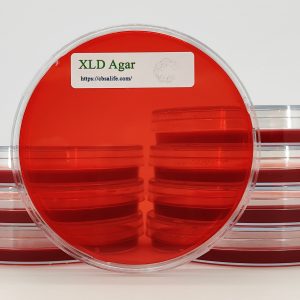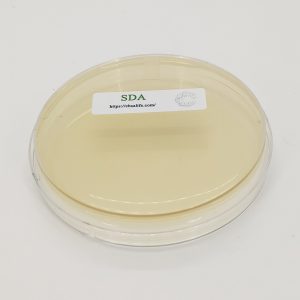CBSAlife M-PA-C Agar is used for the selective recovery and enumeration of Pseudomonas aeruginosa from water samples by membrane filtration.
INTENDED USE
CBSAlife M-PA-C Agar is used for the selective recovery and enumeration of Pseudomonas aeruginosa from water samples by membrane filtration.
SUMMARY AND EXPLANATION
A variety of methods have been used for the enumeration of P. aeruginosa from water samples, some of which have been more widely accepted than others. The most-probable number (MPN) procedures result in satisfactory recovery levels of P. aeruginosa, but are not usable for the testing of large-volume water samples and lack precision. These two deficiencies are eliminated in membrane filter (MF) techniques.
Many of the membrane filter media used for the recovery of P. aeruginosa lacked specificity and were of limited value when large heterogeneous microbial flora were present in the water samples. Levin and Cabelli devised M-PA Agar as a selective membrane filter medium for P. aeruginosa. This formulation incorporated four antimicrobics, kanamycin, nalidixic acid, sulfapyridine and cycloheximide, which render the medium moderately selective. This original formulation was modified by raising the pH and altering the content or concentration of ingredients. The resulting medium was designated M-PA-B Agar. Brodsky and Ciebin further modified these media by eliminating sulfapyridine and cycloheximide and produced M-PA-C Agar. This formulation resulted in the ability to enumerate P. aeruginosa after only 24 hours of incubation at 41.5°C compared to 72 hours required with M-PA-B Agar and 96 hours for a presumptive MPN test. M-PA-C Agar is identified as Modified M-PA Agar in Standard Methods for the Examination of Water and Wastewater.
PRINCIPLE
Yeast extract, lysine and the carbohydrates provide carbonaceous and nitrogenous compounds, energy sources and vitamins required for bacterial metabolism. Sodium chloride maintains osmotic equilibrium. The salts provide essential ions. Phenol red is a pH indicator, which becomes yellow in response to acids produced as a result of the fermentation of the carbohydrates. Kanamycin inhibits protein synthesis in gram-positive organisms. Nalidixic acid blocks replication of susceptible gram-negative bacteria.
| Weight | N/A |
|---|---|
| Container | 60mm Petri Dish, 100mm Petri Dish |
| Package | 1, 10 |
Only logged in customers who have purchased this product may leave a review.





Reviews
There are no reviews yet.